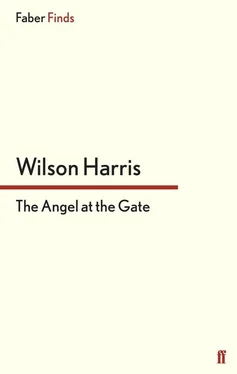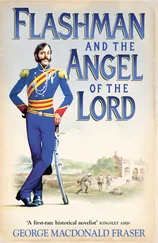As the silence deepened and the traffic itself grew dumb, Jackson was aware of another or other presences in the garden. A cat had appeared. It held a mouse by the nape of its neck.
It deposited the mouse. The mouse ran. One could hear its shriek in a dumb aeroplane that passed overhead. It appeared on the point of secreting itself under a cloud of bricks but the cat sprang, gave it a glancing blow and flung it into the open again. The mouse lay still under the stump of the sunflower. The cat tapped it lightly like wind rustling a dead leaf. It moved, advanced, the cat played with it softly. The mouse’s fur was in the cat’s teeth, gloved silence, gloved uproar and cessation of all sound. Jackson recalled as if the mirror that held him, held the sky, the scene of a street fight he had once witnessed in downtown Buffalo, USA, the conflicting bodies like shadows against a satellite wall in the evening sun.
The cat let it fall. After an eternity, it seemed, the mouse darted like an enlivened root or leaf blown by an unfelt wind across the earth. The cat remained wooden for a lightning frozen instant. Then it pounced, seized the mouse, bit deeply again and again into nape and neck before consuming its victim, starting with the head and eating into space downward.
Jackson was gripped by fascination. Rioting foreigners at the South Pole had vanished. The worn battery voice of the news-reader had grown cold. Minute drops erupted from sunflower in the garden. The cat came towards him. He wanted to strike at it but as it paused by his leg and rubbed itself against him, recognizing its master, its eyes held him with a fiendish innocence, a yellow, imperturbable light as of animal divinity, animal suns.
“Innocence,” said the mirror with a start. “Fancy that! What an idea. Whose discovery I wonder? Neither innocence nor guilt resides in the garden unless one converts play to death into womb of qualities that resembles nature, yet is other than nature as it gleams in a mirror of consciousness. Call that gleam, if you like, innocence and guilt.
“We regress into a womb that is other than any given womb — we regress into silence in the midst of noise, we regress into original light and darkness in the midst of complacent blind — to seek a way across the gulf between animal, divine priority (food, territory, hierarchy) and human, divine perception of innocence and guilt, human inimitable space that converts the food of lust into redemptive passion….”
*
Sebastian rolled over in bed and lay beside Stella. His mind was blank. The roar of a motorcycle passed in Dolphin Street but he heard nothing as if he had died in Stella’s arms and become a log beside her. Or as if he had been flung into space by the passing machine. Nothing lived except the whisper of growing hair, infinitesimal stabbing growth in callous flesh, infinitesimal breath, web and spider of non-sensation. He had forgotten to buy a packet of razors and had awoken that morning, the morning of his death it could have been, unable to shave. Perhaps he had been fired from his job for coming to work unshaven and unkempt. A year it was today that one of his senior mates had lost a son in a motorcycle accident. Sebastian had been at the funeral and placed a wreath on the grave. The dead young man had been growing a beard that would continue to grow for weeks. Unemployed dead. His son (John) was then four months old. The Jamaican tea-lady had said it was a bad omen. Not John’s age… She meant that accidents came three or four in a row. Another would follow, and still another, each a year apart. Instead he (Sebastian) had lost his job on the anniversary of his mate’s son’s death. Was that an accident? A little death perhaps. Living casualty. Another unshaven self-portrait of collective funeral. Where did such thoughts come from? They were foreign to him. Sebastian wondered. He lay still, without thought, yet thinking as if the creature of a larger, absent mind; without reflection, yet reflected as if the creature of a larger pooled reflection; without life, yet alive as if the creature of non-memory of the origins of life.
He floated in the mirror of Mary’s “absent body”, immersed still it seemed in the very gateway of dying into Mary’s messenger of ephemeral bullet. She (Stella), in the first distant roar of approaching motorcycle coming at them in the mists of Dolphin Street, had submitted to him, but it had all been an orgasmic confidence bullet, flood and ebb, fullness and vacant hollow. It was a trick whose subtlety never ceased to amaze him, a trick of resemblances, webbed blood and bloodlessness, cellular evaporation into life. Even John in his cradle, it seemed to Sebastian, was a born chameleon, capable of interior, random fire, presences and absences, in each sudden cry, sudden smile.
Every chameleon-in-depth was a creature of glass. One touched it and it became the colour of one’s flesh. One drew blood from mother-in-child, child-in-mother. Each bloodbank assisted one to venture upon the dangerous web between divinity of the son (Sebastian’s John) and humanity of the mother (Sebastian’s Stella). Sebastian lay now absolutely still. Thinking without thinking as if he were fathoms deep, yet floating above his bed like unshackled soul from body. Just an inch or two up the ladder of space beneath the warring factions under his shadow of the globe where he slept and knew nothing.
Divinity of sleeping son in the cradle! What did it mean? It meant that the baby in its cot, dreaming of playing on the floor, dreaming of food, was a privilege beyond words; its waking gesture should be a miraculous command, its arousal from death immune to punishment, its beauty remind one of the terror of love plucked from appetite and the temptation to batter innocent life that provokes and is helpless.
Humanity of wife and mother! What did it mean? It meant that Stella was vulnerable, that all his imaginings of Titan coition with her made her reflect him in herself as less the masterful lover and more the mimic child, mimic phallic train, father mimicking emergent vehicle or son from mother’s body, jealous father in face of privileged son, privileged wheel of sleep and waking. Except that the child’s unselfconsciousness was beyond the reach of the father’s machine or log; beyond yet linked to it paradoxically not as parody of the son by the father, of the foetus by the parent, but as potential riddle of capacity for related features across all ages, all things and beings and creatures… Heracles strangles a serpent in his cradle. The mouse arises and kills the mystic cat in Jacksonian reversed epic as it descends animal, divine throat into human temptation to strike or intervene.
*
Lucy Brown, archetypal Jamaican tea-lady, of the electrical factory from which Sebastian had been fired in the summer of 1979, came to see Jackson during the week of the Brixton disturbances in 1981. She brought her daughter (whose name was also Lucy) — a young woman of nineteen — with her, and Jackson could see from the younger woman’s manner that she did not altogether relish coming. It was her first visit to North Pole Road but her mother — who was attached to Jackson — spoke of it often. Young Lucy sniffed and cast an unappreciative glance at the spartan room with its mist of faces on the ceiling. The cat lay coiled and still in a corner.
Lucy’s boyfriend had been arrested three days before in Brixton, and the older woman was unhappy over her daughter’s political acquaintance. She hid her anxieties and bustled all the more strenuously with trays of tea. Few of her friends saw her as she was, sagging body, psychical exhaustion. For nothing was self-evident on the surface. She dressed to preserve a robust appearance. Her composure in public was wooden save for a sudden, occasional flicker of alarm when she became enlivened — almost ecstatic — in confessing that blessings and misfortunes came three or four in a row.
Читать дальше












